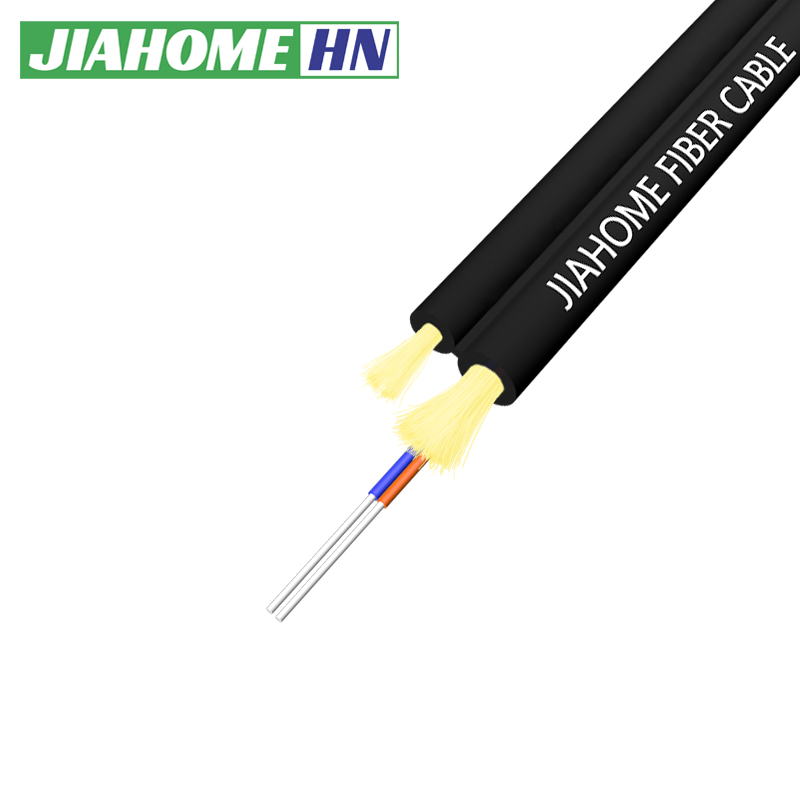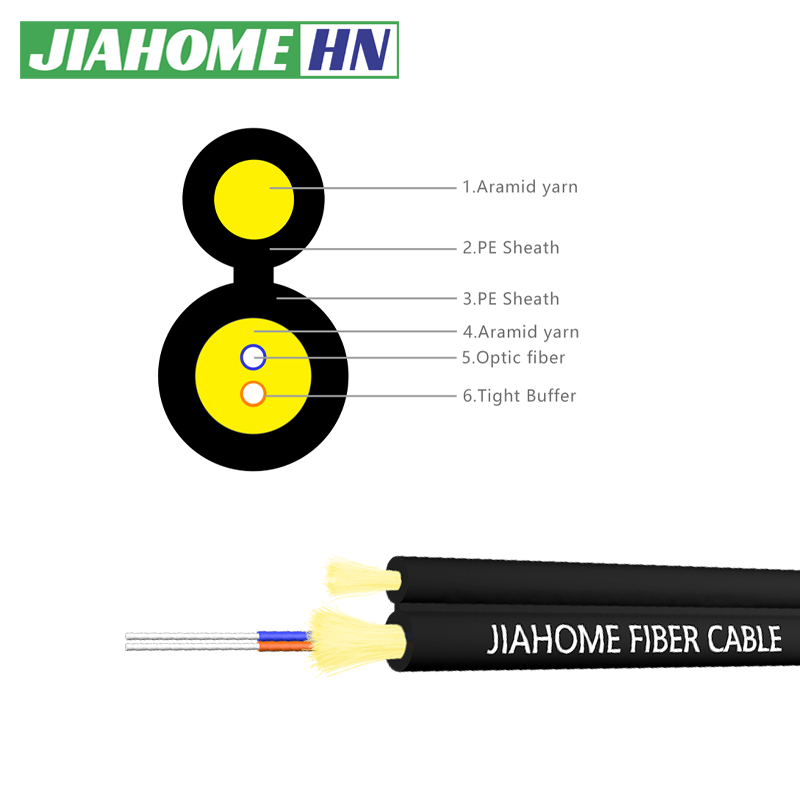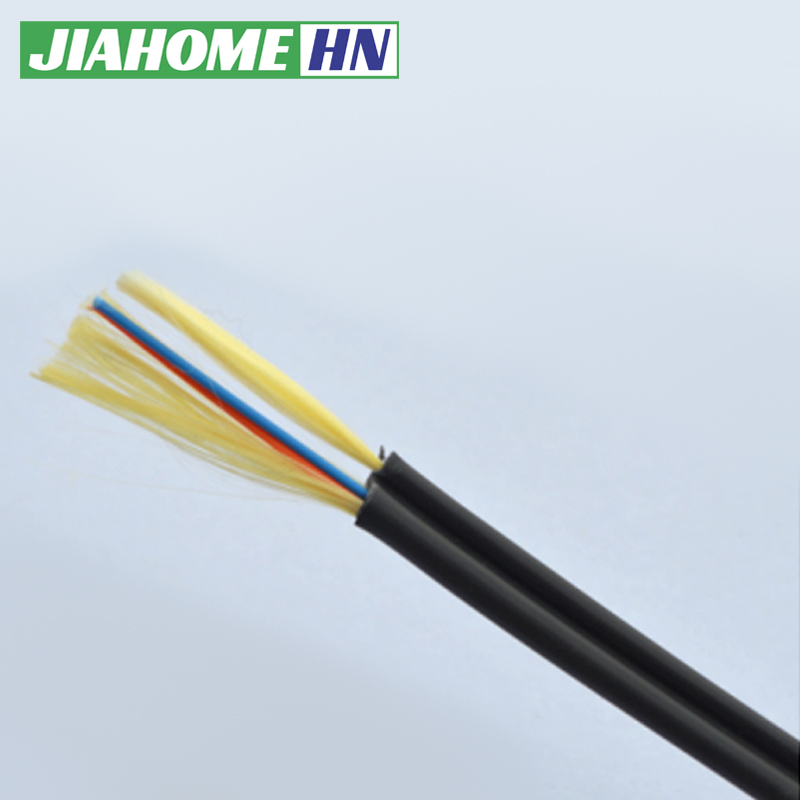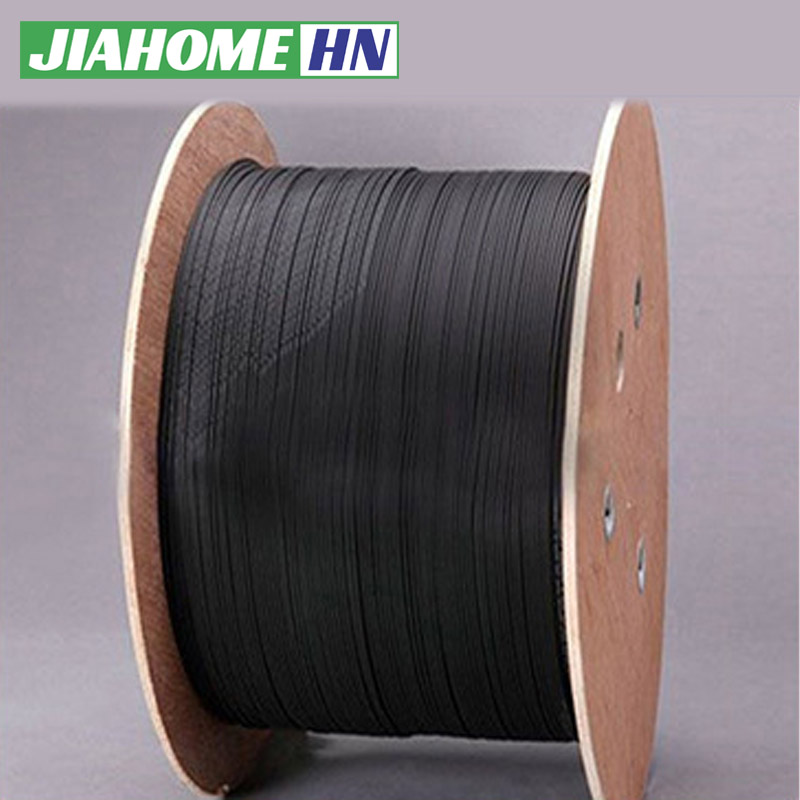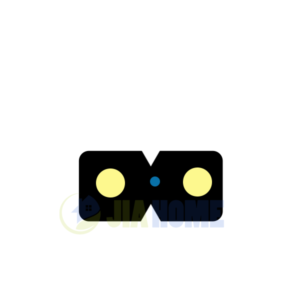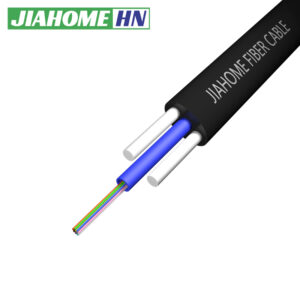Tight Buffer Figure 8 Drop Fiber Optic Cable
FEATURES:
– Small diameter, light weight and friendly;
– High tensile strength of aramid yarn meet the requirements of self-supporting andreduce the installation cost;
– Good mechanical and temperature performance;
描述
Figure 8 Drop Fiber Optic Cable is a specific type of fiber optic cable primarily designed for aerial installations. The cable features a unique “figure 8” shape where the main optical fiber is integrated with a steel wire support member in a single cable jacket. This construction provides the cable with the necessary tensile strength to support itself during aerial installations without requiring an additional messenger wire.
GJFJTC8Y cable is made by evenly applying strands of Aramid yarns as the strength member over o900um or dp600pm fibers. twisting fibers with aramid yarn into thecircular cable core,then steel wires assembled into the shape 8 PE sheath.
Fiber Optical:
| No. | Items | Unit | Specification | |
| G.652D | ||||
| 1 | Mode Field Diameter | 1310nm | μm | 9.2±0.4 |
| 1550nm | μm | 10.4±0.5 | ||
| 2 | Cladding Diameter | μm | 125±0.5 | |
| 3 | Cladding Non-Circularity | % | ≤0.7 | |
| 4 | Core-Cladding Concentricity Error | μm | ≤0.5 | |
| 5 | Coating Diameter | μm | 245±5 | |
| 6 | Coating Non-Circularity | % | ≤6.0 | |
| 7 | Cladding-Coating Concentricity Error | μm | ≤12.0 | |
| 8 | Cable Cutoff Wavelength | nm | λcc≤1260 | |
| 9 | Attenuation(max.) | 1310nm | dB/km | ≤0.36 |
| 1550nm | dB/km | ≤0.22 | ||
Key Features of Figure 8 Cable:
Self-Supporting Structure: The steel or metal wire is included as part of the figure-8 design. Offering enhanced tensile strength for aerial deployments, minimizing the need for extra support
Durability: Built to withstand outdoor conditions like UV exposure, wind loads, and varying temperatures, ideal for long-term outdoor use
Ease of Installation: Its integrated design reduces the need for external support systems, speeding up installation and lowering costs
Single-mode or Multi-mode Fibers: They are available with both single-mode and multi-mode fibers, allowing for flexibility in high-speed data transmission
Resistance to Environmental Factors: designed to handle harsh environmental factors such as water ingress, temperature extremes, and mechanical stress
This cable type is often used in FTTH projects, where high-speed data transmission is required, particularly in aerial setups.
